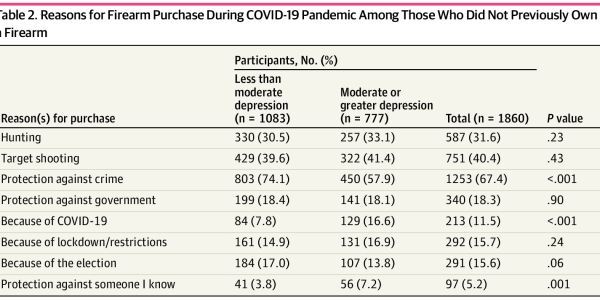Penny stock peer review - sell science to each other under the stock rises enough they all cash in
There used to be a joke about selling swampland in Florida, and the concept later migrated to small capitalization (penny) stocks. The idea was to gather a group, take a plot of land or a small stock and keep selling it at higher prices to another member of the group, driving up the valuation. Swamp land in Florida or stock in a chain of three office supply stores became valuable.
When the useless land valuation got high enough, the company holding it went bankrupt and the bank was stuck with losses while the group got rich. Or a stock was sold off with the last broker's customers were stuck with the inventory. The reason to do it worked was easy. If you had 10 members you each only lost money once, which means you made a fantastic profit for your customers 90 percent of the time.
Penny stock peer review happens as well - activists have written entire strategy documents where they plan to recruit a prominent scholar whose political sympathies lie with them, someone experienced in top-tier journals. They offer to do most of the work, they include their own papers as citations, then they get other scholars to write papers supporting the original ready to come out shortly after.
Those papers drive up the citations of the main article. Whatever claim they are making, real or not, becomes "emerging evidence" and then a press release gets into the New York Times.
Given such common collusion at the high end, imagine what they can do to a lone researcher who defies their narrative and supports a chemical or food.
That is the issue in food research today. They will smear you if you hurt their financial goals. And they never stop; over 50 years ago Harvard professor Fred Stare was one of the most prominent nutrition scholars in the world. He founded the Department of Nutrition at Harvard School of Public Health. He was also eminently practical. From 1942 when he founded the department until his retirement, he fought back against increasingly suspect food peril claims. When activists helping lawyers at Center for Science in the Public Interest used statistical correlation to claim red meat was killing people, he showed that was not so, as he did with fat and with sugar and alcohol causing breast cancer and other claims.
Yet one time in the 1960s his department had gotten a donation from a sugar trade group, $5,000, and activists mobilized their public relations machine to claim he was on the take from Big Sugar and single-handedly caused low fat diets to become the rage. Their claim gets repeated every few years, like when a government claims they need to put sin taxes on sugar or activists want to sue. His Wikipedia page has been butchered beyond recognition by a small cabal who have engaged in penny stock factuality by rewriting each other's increasingly bizarre claims (like that he asked Big Tobacco for funding, when it was a genetic fundraising prospect letter with his name on it) without ever undoing them.
Do you want to fix it? No one does, they control the landscape and you will get banned from Wikipedia because they will get a gang to claim you have a conflict of interest, even if you simply know facts. My Wikipedia page was even removed because Nathaniel Strauss, a Seattle attorney who collaborates with the activist site Sourcewatch, targeted me. Was he being paid by them or just doing it because they are ideological allies? His employer refused to respond and since they work for themselves for free and lawyers for the science side have to be paid, it wasn't worth pursuing. We find the same behavior among their allies in the anti-vaccine movement, who physically attacked Sacramento Dr. Richard Pan because he wanted vaccine exemptions to only be for medical reasons.
It's easy to do so in America, a tenured professor now averages $120,000 per year in salary thanks to generous taxpayer funding and the government switch to allowing unlimited student loans nearly 30 years ago. Which Democrats in Congress did at the request of universities who noted that a college degree boosted lifetime earnings, on average.




